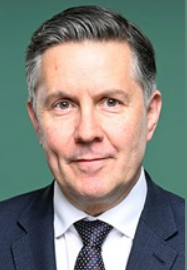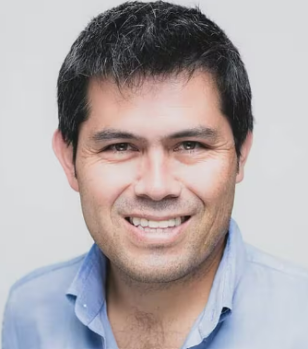A national centre for disease control is to be established in reaction to the Covid-19 inquiry.
The inquiry – set up to examine the Commonwealth’s response to the pandemic and whose final report was released this week – laid out nine recommendations and 26 actions to improve Australia’s preparedness for future outbreaks.

One of the core recommendations of the 12-month investigation was to set up a new Australian Centre for Disease Control. “The establishment of the Australian CDC will help ensure we are prepared next time,” federal minister for health Mark Butler said. “And there will be a next pandemic,” he warned.
Professor J Jaime Miranda – from the University of Sydney School of Public Health – agrees. He told Government News “pandemics are here to stay”.

“This is compounded by persistent challenges in infectious diseases, comorbidities, and the disproportionate burden on vulnerable and disadvantaged groups. Addressing these issues requires coordinated action and responses,” he said. “The Centre for Disease Control will serve as a unique platform for both pandemic preparedness and knowledge-sharing with the world.”
The Australasian Society of Infectious Diseases has long advocated for a national organisation such as the CDC. “We think it will really help because we need workforce capacity, we need the systems and harmonisation of processes across the nation in responding to emerging threats,” ASID president Associate Professor Joseph Doyle said. “We need to also be able to evaluate all responses and have the health promotion and communication capacity to convey complex messages to the public.”
The new Canberra-based body – which will receive $251 million in funding and is due to become active on 1 January 2026 – will be responsible for building a national communicable disease data integration system. “Our data and disease-surveillance systems were, frankly, simply not up to the task,” Butler said.
The CDC will also provide independent evidence-based advice to all levels of government about a future pandemic response, said Butler. “The CDC should give us the capability as governments and communities to have a good evidence base for making decisions.”
However, the minister was clear to point out that the CDC will not hold power over state and territory governments. “States still have their public health legislation, with their own systems providing advice from their chief health officers to health ministers and so on. We’re not seeking to take that over,” he said.

Even so, Doyle told GN the states and the Commonwealth will need to work together. “There is going to have to be a lot of goodwill and give and take to set up this national body,” he said.
Acknowledging that Australia already does pretty well when it comes to different tiers of government pulling together in a crisis, Doyle said “but we can do better, and we can have more commonality of response”.
He added: “It’s not just about health and science – which is critical – but responding to health challenges requires many aspects of government.”
Heading the interim CDC senior health executive Mary Woods who held previous roles at the Department of Health and Aged Care. Woods will lead a team of epidemiologists, statisticians, public health practitioners, infectious disease physicians, special microbiologists and bioethicists.
Legislation will be introduced into parliament next year to formally set out the CDC’s precise functions. “This is something that we have been working very closely with states and territories about,” Butler said.
It’s hoped the establishment of an independent, transparent body will go some way to rebuilding public trust in governments and scientific institutions, which the inquiry found had substantially diminished during the pandemic.
Addressing the trust issue, Butler said: “The CDC is central to being able to give the Australian community confidence in the future, that is what they’ll have.”





Leave a Reply